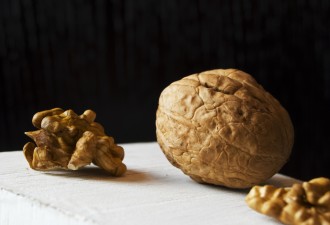What is a “Leaky Gut”
If you have digestive complaints such as bloating, gas, pain or irregularity in bowel movements you may have been told you have a “leaky gut”. Another fancy term for this is “increased intestinal permeability”. Your digestive system is one long, twisted tube, lined by a layer of cells. These cells act like a barrier – between the inside of the gut and the rest of the body. They help regulate what gets absorbed into your body from your digestive system. In a healthy gut, these cells help facilitate the absorption of water, nutrients and glucose – all necessary for your body to function. When someone develops a “leaky gut” it means that the cells that line the intestinal wall in their digestive system were at some point damaged. With the damage done and the barrier compromised, there is less control as to what can cross over from the gut and into circulation. This means that there is potential for bacteria and virus particles, incompletely digested proteins and fats from food and toxins to “leak through” the digestive system and into circulation. Once absorbed, these can trigger the immune system, create inflammation and produce undesirable symptoms.
SYMPTOMS OF LEAKY GUT
A variety of seemingly unrelated health conditions have been associated with leaky gut. In clinical practice I consider increased intestinal permeability to be a possible contributing factor in health complaints that include:
- eczema
- psoriasis
- migraines
- inflammatory bowel conditions
- irritable bowel syndrome
- joint pain
- digestive discomfort such as bloating, pain, bowel movement irregularity
- fatigue
Causes of Leaky Gut
Anything that could possibly cause damage to intestinal lining can contribute to the development of leaky gut over a period of time. This includes:
- history of antibiotic use
- history of NSAID use (aspirn, advil, naproxen etc.)
- history of parasitic infections or other bacterial/viral infections such as the norwalk virus
- chronic stress
- poor diet – processed foods, high sugar
- alcohol intake
- chemotherapy and radiation
How to heal leaky gut
In order to see improvement in health concerns that have been associated with increased intestinal permeability, we must heal the gut first. Once the intestinal barrier begins to function properly by being selective as to what enters the body from them gut, systemic inflammation decreases and symptoms improve. The first step involves changing the diet to avoid food sensitivities, processed foods, sugar and alcohol. A diet high in green veggies, healthy fats such as olive oil and raw nut and seeds, lacto-fermented foods, healing teas, clean water and fibre is a good start. Depending on the patient – quality probiotics, digestive enzymes, glutamine, slippery elm, omega 3 fatty acids or other healing nutrients may be added. I don’t like to overwhelm my patients with too many supplements. Normally we rotate different nutraceuticals as needed. Typically, improvement in symptoms is noted in the first 4 weeks but healing may take longer depending on the patient.
Take good care of your gut and in turn, your health will improve.








